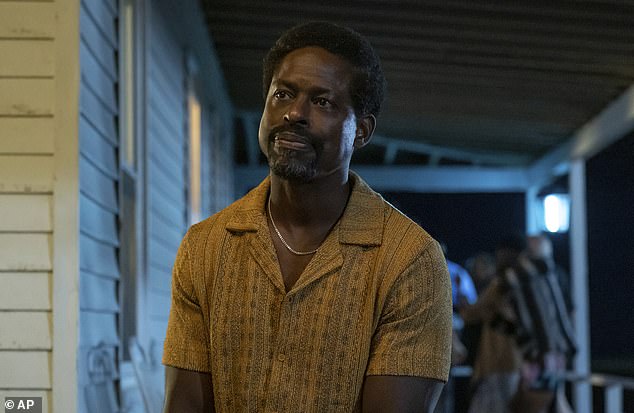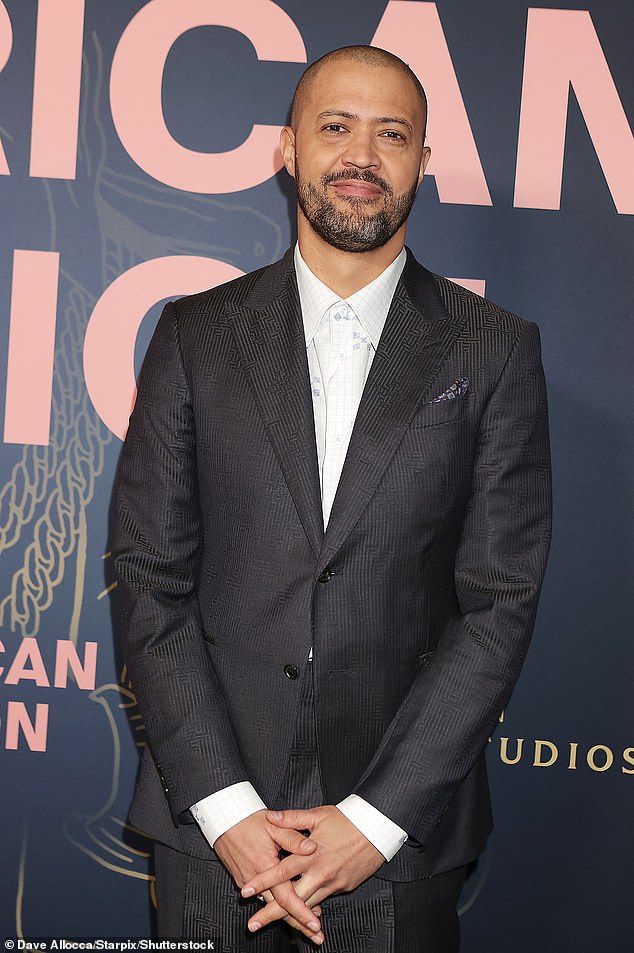MGM’s acclaimed new movie American Fiction tells story of African-American writer who jokingly pens book filled with black stereotypes that’s lauded by powerful white liberals
A new MGM film that forces white liberals to confront their own hypocrisy in Hollywood and beyond is drawing rave reviews from the very people it exposes.
Cord Jefferson's “American Fiction” is a commentary on the way the establishment favors reductive portraits of blackness in the name of diversity and inclusivity, often at the expense of quality.
The film tells the story of a black professor, Thelonious “Monk” Ellison, played by Jeffrey Wright, who is tired of his snowflake students and struggles to gain any critical interest in his work, so he jokingly writes a novel full of racial stereotypes just for it becomes an overnight success.
The biting satire pokes fun at powerful white liberals in the publishing industry and later in Hollywood, who picked up the bizarre parody, titled “My Pafology,” later renamed “F***.”
And now, in an ironic twist, the film has received great reviews from left-wing publications eager to let it be known that they were in on the joke.
American Fiction stars Jeffrey Wright as frustrated professor Monk Ellison, who jokingly resorts to writing a novel based on black stereotypes in an attempt to achieve commercial success.

Ellison is stunned when his poverty porn book 'My Pafology' becomes an overnight success, proving that white liberals are only interested in certain depictions of blackness
The Washington Post states that the film is “Racial parody rooted in chillingly familiar honesty.”
Salon argues that American Fiction “provides a new framework for what black success means for writers.”
While Rolling Stone calls the film “an absolute triumph” for the way it “deconstructs how white guilt stifles black creatives.”
In the film, Jeffrey Wright's middle-class monk only achieves commercial success when he ignores his privilege and writes a “hood” novel under the pseudonym on-the-lam con Stagg R. Leigh.
Ahead of his six-figure book deal, an irritated Monk is seen arguing with publishers who believe his classics-based work should be categorized under African-American literature due to their fixation on race.
He is advised to write something “blacker” and is ultimately inspired to do so after witnessing the success of fellow author Sintara Golden (Issa Rae), an Oberlin-educated writer praised for her “urgent” and ” raw' poverty porn novel, 'We live in Da Ghetto'.
But by combining this plot point with an exploration of Monk's personal and family life, including his struggle to connect with siblings played by Tracee Ellis Ross and Sterling K Brown, the film attempts to highlight how absurd the fixation solely on race has become.
“The important question to ask, the question I'm asking now, is: Why is this stuff being made to the exclusion of everything else?” Jefferson said Rolling stone.

The film tries to keep white liberals, who have appointed themselves as arbiters of black art, in line. Pictured: Sterling K. Brown as Monk's brother

Combining this plot point with an exploration of Monk's personal and family life, including his struggle to connect with siblings, played by Tracee Ellis Ross and Sterling K Brown, the film attempts to highlight how absurd the fixation solely on race has become.

The film is the directorial debut of Cord Jefferson, who attempts to ask the question “what it means to be a black writer and a black creative”
'Why is it always the tragedy and the misery? Abuse and violence, cross burnings and lynchings, shootings and murder and death and drugs – why has black life been reduced to just the screen? To me, it suggests an inability to see black people as complex, nuanced, and full of interiority as anyone else.”
Hollywood itself does not escape unscathed in American fiction.
A key target in the film is a pseudo-woke filmmaker, played by Adam Brody, who insists on calling Monk “brother.”
The character's latest film is a horror film featuring a couple who get married on a plantation only to be haunted by the ghosts of slaves – an apparent reference to Ryan Reynolds and Blake Likely's wedding that took place under such circumstances.
With the film receiving critical acclaim with glowing articles titled: 'How Cord Jefferson Took on Hollywood and Won' per Rolling Stone, it has sparked speculation that Hollywood might be turning away from 'wokeness'.
'Look, films like 12 Years a Slave are important. I like New Jack City and Django Unchained. “Oh, Boyz n the Hood is on? Let's look into it,” Jefferson told the outlet.
But he added that his film is an expression of “what it means to be a Black writer and a Black creative, and the expectations that people have of what Black artists should create.”
